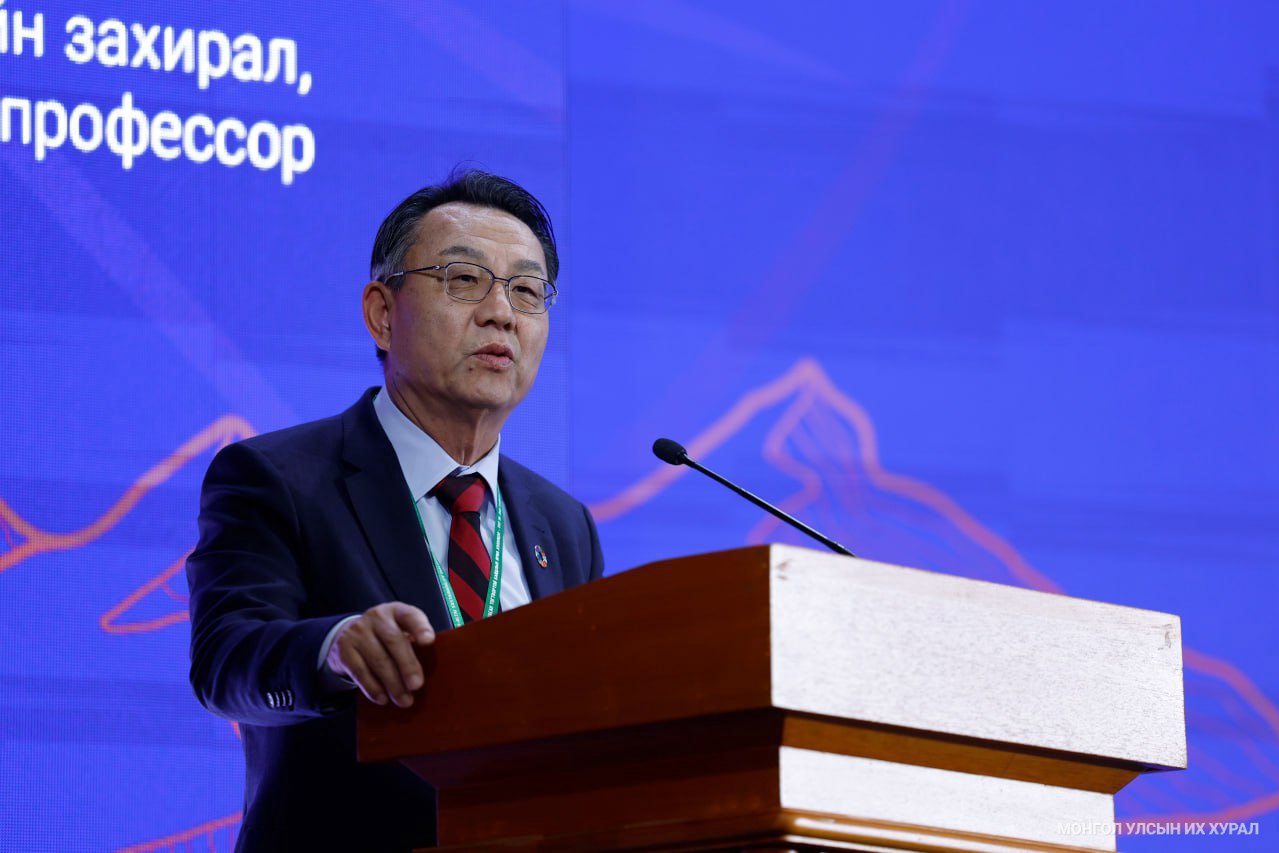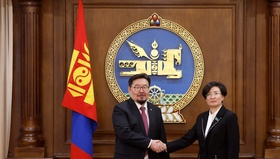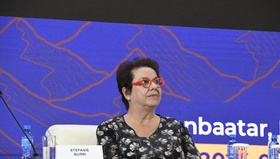Your Excellencies!
Ladies and gentlemen, esteemed speakers, guests, and friends,
Good morning, and a warm welcome to the 2024 Trans-Altai Sustainability Dialogue! I am Gi-Wook Shin, the director of Stanford University’s Walter H. Shorenstein Asia-Pacific Research Center, APARC. It is delightful to see again many old friends, and encouraging to meet many new collaborators in attendance.
Today's gathering builds on the momentum we have garnered through a tremendous collaborative effort. It all began with the Trans-Pacific Sustainability Dialogue, a joint initiative of APARC and the Ban Ki-moon Foundation For a Better Future. We launched this endeavor to accelerate progress toward achieving the United Nations-endorsed 2030 Agenda for Sustainable Development by forging research and policy partnerships to expedite the implementation of the Sustainable Development Goals outlined in the Agenda.
The inaugural Dialogue convening in Seoul, South Korea, ignited great enthusiasm, prompting our partners at the State Great Hural of Mongolia to champion the creation of this sub-regional convening, the Trans-Altai Sustainability Dialogue. The TASD reflects our collective recognition of the pivotal role of local approaches in guiding and achieving global targets for the Sustainable Development Goals.
I am proud to see the TASD evolving into an annual tradition, a testament to the success of our Dialogue initiative and the enduring partnerships we have cultivated. I am also profoundly grateful to Secretary-General Ban and the Ban Ki-moon Foundation for their steadfast commitment to our collaborative effort, and to Chairman Zandanshatar and all our partners at the State Great Hural of Mongolia for spearheading the TASD and their gracious hospitality.
The Government of Mongolia has made strides in devising accelerators to achieve the SDGs. These accelerators are anchored in commitments to advance gender equality - Goal 5, the subject of last year’s inaugural TASD - and foster effective governance - a primary catalyst of Goal 16, the focus of today’s convening.
Goal 16, “Peace, Justice, and Strong Institutions,” outlines a collective vision emphasizing the pivotal function of effective, accountable, and inclusive governance in fostering sustainable development. This vision - of a world where people live in security and societies provide human rights and essential services - hinges on the effective, inclusive, and accountable exercise of power at all levels. Goal 16 thus illuminates the crucial role of institutions and how they work in achieving the 2030 Agenda.
Goal 16 is a linchpin in the vision underlying the universal global development agenda. Still, all its targets are off track. Alarmingly, progress on many Goal 16 targets has been stagnating and, in some cases, even regressing. As the latest Sustainable Development Goals Report states, “structural injustices, inequalities, and emerging human rights challenges are putting peaceful and inclusive societies further out of reach.”
These trends have occurred amid eroding trust in public institutions; pervasive social, economic, and political polarization that grips societies; and an overall compromised social contract. I have written extensively about how South Korea now confronts the grave threats of illiberalism, populism, and polarization. Korea is far from alone in this battle.
To meet Goal 16 by 2030, it is imperative to rebuild trust in the public sphere and strengthen the capacity of institutions to facilitate the transition to sustainable development. The challenges before us are formidable but not insurmountable. Numerous examples demonstrate that viable practices that promote peacebuilding, access to justice, and effective governance are available to us. We must therefore speed up action on Goal 16, both as a goal and as a foundation for universal development. We must prioritize its targets that align with regional and national objectives and generate meaningful connections between citizens and governments.
This was exactly the motivation behind our Sustainability Dialogue initiative: to create a multistakeholder forum where we leverage our intellectual resources and forge partnerships essential to catalyze tangible outcomes. Rather than rehashing challenges, we are here to chart a course toward urgent progress. Let us begin our convening today with this spirit of determination.
As we open today’s convening, I want to express again my sincere gratitude to our hosts, co-organizers, and each of you for joining us. I am excited for the lessons, findings, and bonds we will share and forge and confident that, by working together, we can advance peace, justice, and strong institutions in tangible ways.
Thank you.

 Eng
Eng  Монгол
Монгол


